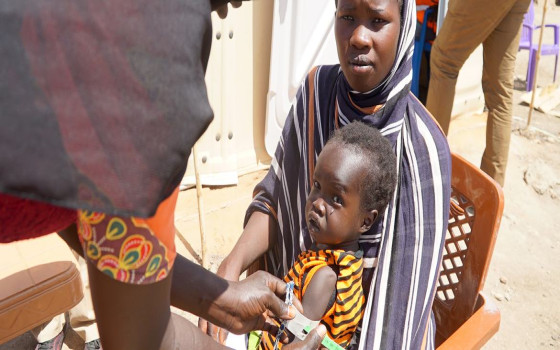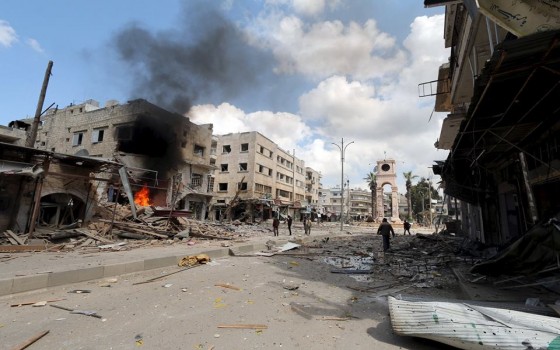
Hunger threatens millions of Sudanese refugees in neighboring countries. More than four million have fled since April 2023 and are suffering due to severe funding crises.

- Europe and Arabs
- Tuesday , 1 July 2025 15:28 PM GMT
Khartoum - New York: Europe and the Arabs
The World Food Programme (WFP) has warned that millions of Sudanese refugees who have fled to neighboring countries are at risk of slipping further into hunger and malnutrition, amid massive cuts in life-saving food aid due to severe funding crises. According to a UN daily news bulletin we received on Tuesday morning, the programme added that in a statement issued yesterday, Monday, the programme said that since the outbreak of conflict in Sudan in April 2023, more than 4 million people have fled to neighboring countries in search of food, shelter, and safety. It noted that families often arrive traumatized and malnourished, with little more than the clothes on their backs.
The programme noted that it has rapidly provided emergency assistance to refugees fleeing to seven neighboring countries, providing them with food and cash assistance, hot meals, and nutritional support in the Central African Republic, Chad, Egypt, Ethiopia, Libya, South Sudan, and Uganda. The program has also expanded its support to host communities that have welcomed and generously supported refugees, despite already suffering from food insecurity.
However, the UN agency warned that without new resources, its assistance to Sudanese refugees in the Central African Republic, Egypt, Ethiopia, and Libya could be cut off in the coming months.
He added that in Uganda, many vulnerable refugees are surviving on less than 500 calories a day—less than a quarter of daily food requirements—while new waves of arrivals are pushing refugee support systems to the brink of collapse. In Chad, which hosts about a quarter of all refugees fleeing Sudan, food rations will be reduced in the coming months unless additional contributions are received soon.
A Full-Full Regional Crisis
“We are facing a full-fledged regional crisis that is worsening in countries already struggling with high levels of food insecurity and conflict,” said Sean Hughes, WFP Emergency Coordinator for the Sudan Regional Crisis. He added that millions of people fleeing Sudan are entirely dependent on WFP support, but without additional funding, the program will be forced to make further cuts, "leaving the most vulnerable families—especially children—at increased risk of hunger and malnutrition."
According to the program, children are the most vulnerable to the effects of protracted food insecurity. Global acute malnutrition rates among refugee children in reception centers in Uganda and South Sudan have exceeded the emergency threshold, with many children suffering from malnutrition even before they arrive to receive assistance.
The program requires just over US$200 million to continue its emergency response to Sudanese refugees in neighboring countries over the next six months. It also requires an additional US$575 million to carry out its lifesaving operations inside Sudan.
The program official said, "Humanitarian support alone will not end the conflict and forced displacement. Urgent global political and diplomatic action is needed to end the fighting and achieve peace and stability."












No Comments Found